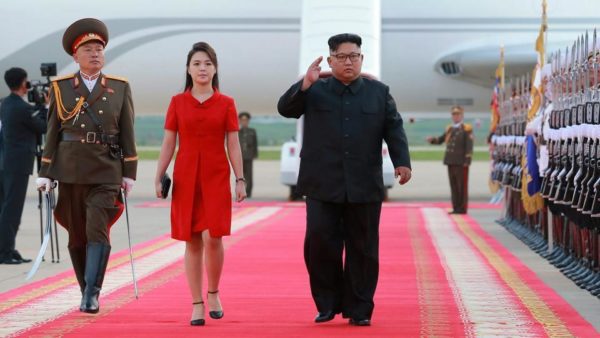We love books. But no matter how much we read, there are always dusty shelves and stories — real or fictional — that we still haven’t opened our eyes to.
So every month, we’ll write about a topic, an author, or a series that catches our attention. Whether it is James Bond or Scandinavian noir, the idea is to celebrate best-sellers across the world and discover more about the unknown faces behind forgotten books.
Bookworm or not, we promise there’ll be a little bit for everyone, because after all, books are forever.
We are now living in a world a lot of us wouldn’t have imagined would exist again. But we’ve all seen it before: in history, and in umpteen dystopic novels and stories. Most famously, the workings of this world were perfected by George Orwell in his novel 1984. He understood, perhaps in the aftermath of the devastating World Wars and horrors of Holocaust, that all dictatorial regimes follow the same rule — only some refine the laws to their advantage.
Even today, the world of Oceania and Big Brother breathes within the trappings of the 21st century. It survives in North Korea, the hermit kingdom that nobody seems to care about unless it threatens to bomb the US and its southern counterpart. While the Soviet Union and Communist-turned-authoritarian regimes fell across the years, the Kim dynasty has consolidated its power in North Korea at the cost of its citizens.
It’s ironical that just last month, President Donald Trump called North Korean leader Kim Jong Un a “very special man”. But if the US-North Korea summit, full of imageries of the Trump-Kim bonhomie — tells us anything, it is to try and understand how such regimes prevail and sustain themselves.
Luckily, there are people who’ve survived to tell the tale or made it their mission to expose this world. Here are four books on North Korea that you must read:
Nothing to Envy: Ordinary Lives in North Korea, by Barbara Demick
A country is not judged by how privileged its elite are. It is defined by how it treats its commoners. Through exhaustive interviews of North Korean defectors, Nothing to Envy gives a wholesome image of life in the kingdom in the 1990s, when famine was at its worst. It tells of generations of censorship, of growing up under the omnipresent portraits of Kim Il Jung and his heir Kim Jong Il. It talks of the daily battles just to find some food, of the calibrated education system that inculcates the cult of the ‘Supreme Leader’, the movies and songs of devotion, the spies waiting to rat out any hint of dissent and the final result — a country eternally bowed to its dictator.
Still these details, as enthralling and baffling as they may be, weren’t the best part of the book. The stories of love blooming in the darkness of the regime and of families that sacrificed for each other were the clichéd elements that are most likely to get etched in memory.
A Kim Jong Il Production, by Paul Fischer
There couldn’t have been a more befitting, and bewildering, story to tell of North Korea. Famous director-actor couple Shin Sang-ok and his wife Choi Eun-hee were abducted and held captive in North Korea to fulfil movie-aficionado, and dictator, Kim Jong Il’s fancy: creating propaganda films for the regime. Written like phases of a script, Paul Fischer details the couple’s description of the elite, the ridiculous parties thrown by the Supreme Leader’s heir at the time, their final escape and their life after returning from the Kingdom.
It’s surreal to believe this story, knowing it isn’t fiction, but that’s exactly why this book should be read.
Without You, There is No Us, by Suki Kim
Suki’s delicate prose translates beautifully into a thriller that emanates the palpable tension felt by the author who was working undercover as a Christian teacher in North Korea. Her claustrophobia and paranoia of working under constant surveillance, of falling in love with her child-like students from the rich families of North Korea and the minute record of each emotion is striking in Suki’s journey. More importantly, her story is about the differences between her — a South Korean immigrant to America and North’s sworn enemy — and her students that don’t actually matter. Except when they do.
The Aquariums of Pyongyang, by Kang Chol-hwan and Pierre Rigoulot
The Aquariums of Pyongyang was written only because the author wants the world to remember the inhumanity of the regime, the atrocities carried out by North Korea’s leaders and the suffering of its masses. Kang Chol-Hwan was only 9 years old when he was sent to prison because his grandfather, a high-ranking official who had shifted from Japan to Pyongyang for the Marxist cause, was effectively purged. The story of a child toiling in the grave fields of the camp, of being beaten up in school by his teachers, of scouring for rats and worms as food is disturbingly real, to say the least.
Kang’s account should be read simply because it is relevant, now more than ever, in the aftermath of the Trump-Kim summit to be aware of what the little men with pudgy faces and red cheeks have been doing for decades. And ignoring is not an option any more.



Leave a reply